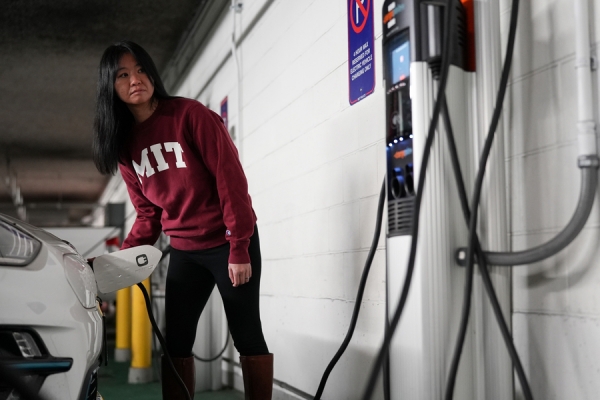National and global plans to combat climate change include increasing the electrification of vehicles and the percentage of electricity generated from renewable sources. But some projections show that these trends might require costly new power plants to meet peak loads in the evening when cars are plugged in after the workday. What’s more, overproduction of power from solar farms during the daytime can waste valuable electricity-generation capacity.
In a new study, MIT researchers have found that it’s possible to mitigate or eliminate both these problems without the need for advanced technological systems of connected devices and real-time communications, which could add to costs and energy consumption. Instead, encouraging the placing of charging stations for electric vehicles (EVs) in strategic ways, rather than letting them spring up anywhere, and setting up systems to initiate car charging at delayed times could potentially make all the difference.
The study, published today in the journal Cell Reports Physical Science, is by Zachary Needell PhD ’22, postdoc Wei Wei, and Professor Jessika Trancik of MIT’s Institute for Data, Systems, and Society.
Read more at Massachusetts Institute of Technology
Image: MIT researchers have found that, by encouraging the placing of charging stations for electric vehicles (EVs) in strategic ways, as well as setting up systems to initiate car charging at delayed times, electric vehicles could have less impact on the power grid. Image Credits: Melanie Gonick, MIT


